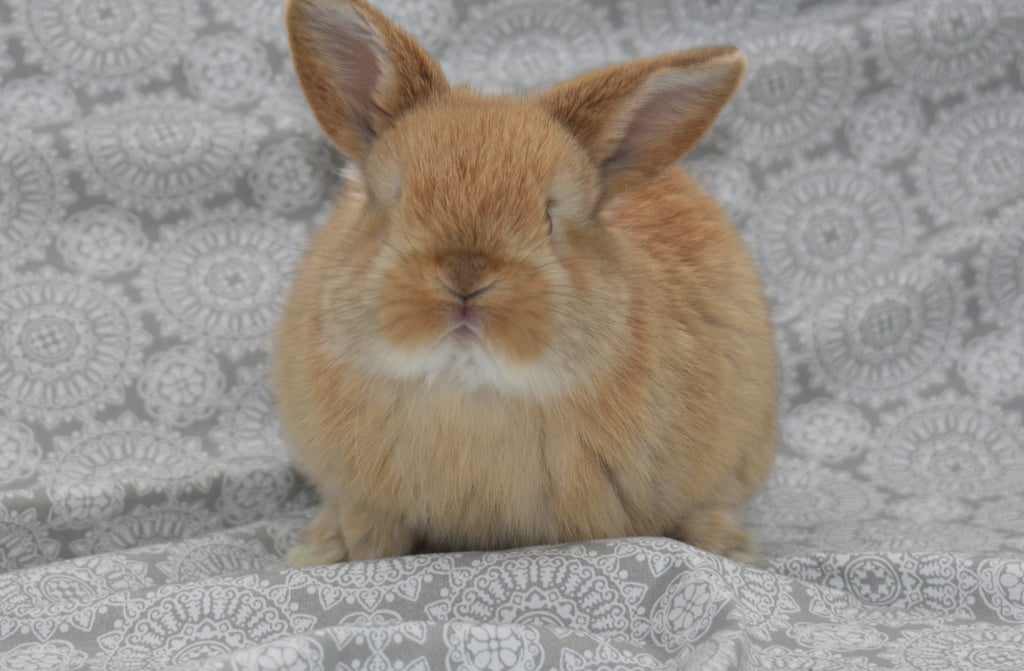Are Rabbits Good Pets for Families with Young Children?
Rabbits can be excellent pets for families of all ages, if the parents are committed to being involved and providing abundant supervision to ensure the safety of the bunny and the child/children involved.
Amy J - HCB's resident "Big Bunny"
4/9/20244 min read


We are often asked this relatively loaded question by people who are considering a rabbit as a family pet. When seeking an answer online, the pat answer that rabbits are not good pets for children under 12 years of age always irks us. We have known adults we wouldn't entrust with a pet rock, let alone a precious living animal, so age is not necessarily of prime importance when thinking about adding a bunny as a family pet. Age actually has very little to do with it. We prefer to look at the family's overall level of commitment to providing a safe environment for the rabbit, as well as the level of guidance and supervision the child/children will receive when interacting with the new pet.
Young children who have grown up with other pets such as dogs and cats often learn how to interact with them gently and respectfully from their earliest days. They can learn how to pet them, to use gentle, quiet voices around them, how to feed and brush them, and to enjoy their time together. If children have learned these lessons, why can't they learn how to respectfully and lovingly interact with a rabbit, as well?
Arguably, caring for a rabbit is very different, as they are smaller, more fragile, and tend to be more sensitive to changes in their environment. As prey animals, they will kick and fight to protect themselves, so young children must be taught to never pick up a rabbit because doing so could lead to devastating injury to the rabbit and painful injury to the child. Rabbits will usually very willingly hop into the lap of a child once trust has been established.
Parents need to be involved and must lead by example. If a child is begging for a pet rabbit but neither parent has an interest in rabbits nor the desire to help care for one, a different type of pet that the whole family would enjoy should be considered. The ideal rabbit family will involve all family members, from youngest to eldest, interacting with and caring for the pet bunny. It would not involve parents complaining that the child hasn't been taking care of his/her pet, but all members of the family pitching in together to clean the habitat, groom the bunny, and have playtime as a family with the bunny being involved. They love to be included!
Great bunny families tend to be more laid back, with fewer scheduled activities for the children, and more time to take life a bit more slowly. Busier families can enjoy interacting with a pet bunny, but they need to be diligent in providing care and interaction on a daily basis.
It might be best to wait to the add a pet rabbit (for the time being) if:
the family is struggling to keep up with regular routines like laundry, dishes, bedtime/bath time because everyone is worn out from other activities or stressors on their life
you are caring for several very young children, close in age to each other (We had five children age four and under and I barely had time to breathe, let alone care for another living creature and would have been consumed by guilt and worry about not giving it the life it deserved. Don't do that to yourself! Just wait a while longer until life becomes more manageable and you can look at a pet with joy, rather than as another responsibility or duty to fulfill.
you have a child who is quite vocal and has very large emotions and frequent meltdowns. Bunnies are sensitive to sound and may become frightened and nervous around such normal behaviors from children who are still learning how to navigate life and moderate their feelings.
your child does not understand how to interact with animals and wants to squeeze/clutch/grab/hold/pick up every animal he/she sees. Rabbits will not tolerate this behavior and will bite. nip, scratch, and kick to get away from unwanted attention.
your child loses interest in new toys, things, or ideas that had to be obtained or pursued, a pet bunny might just be another fad. Wait it out and see if the interest wanes.
Your children may very well be ready for a pet rabbit if:
They are able to use quiet, "indoor" voices and only need occasional reminders to quiet down when excitement takes hold and enthusiasm bubbles over
They don't force interaction with another animal or person and can wait patiently for "their turn"
They can "keep their hands to themselves"
They can follow simple directions and have a desire to be helpful and follow through
They are able to understand that sometimes an animal may not want to be touched because it wants to go to sleep or be quiet for a while
They will not try to pick it up and are content to wait for the animal to come to them, even though it can be hard to wait
They are gentle and patient about most things
They have been involved in the research learned when considering a pet rabbit. Children are very intelligent and can learn just as much as the grown-ups when information is shared with them. If they are asked their thoughts, they can often articulate things that excite, worry, frighten, or make them more curious. Listen and learn together.
Rabbits are amazing animals and are great pets for families who have taken the time to learn all that they can about them. If there are aspects of their children's development that may not currently be the best fit for a bunny to adapt to, a wise family will wait until the timing is better. Supervision during all interaction with a pet bunny is a must for all families with younger kiddos. If you have the time, the space, the dedication, and the love to give to a pet rabbit, do some more research and spend some time considering if your child/children are in a good place developmentally to share their life and home with a bunny. The more time and effort you put into caring for a rabbit as a family, the more successful and joyful the experience can be.
